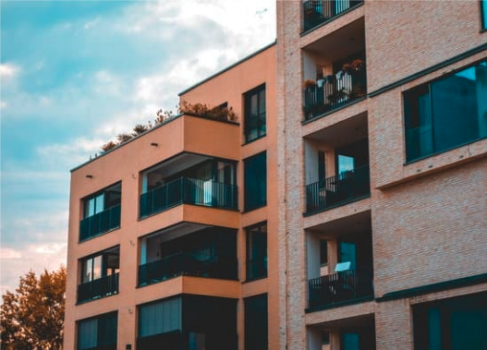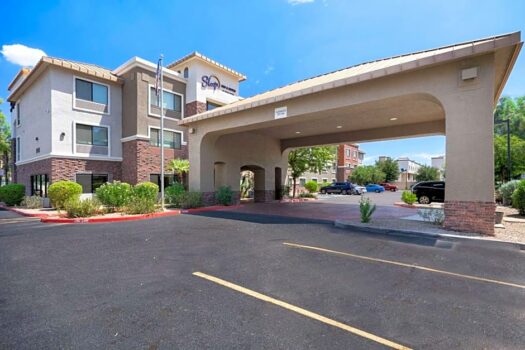
The landscape of real estate and property development is continuously evolving, presenting new opportunities for investors and property owners. One such innovative approach is hotel conversions, where existing hotels are transformed into student housing, apartments, shelters, etc. This guide will delve into how you can determine if your hotel holds potential for such a conversion, with insights from industry experts and successful case studies.
Understanding the Concept of Hotel Conversion
Hotel conversions are an innovative solution that addresses the growing need for diverse types of housing and other facilities in densely populated areas. By repurposing existing hotel properties, developers can provide housing solutions faster, particularly in urban centers where new construction spaces are limited. This approach leverages existing structures, which can often bypass the prolonged timelines associated with ground-up construction. Moreover, hotels are typically well-located, close to city centers and amenities, making them ideal candidates for conversion into residential apartments, student housing, or even mixed-use developments
Benefits of Converting Hotels into Alternative Spaces
The benefits of converting hotels into alternative spaces are multifaceted. Economically, these projects can yield significant advantages by generating stable, long-term revenue streams and reducing operational costs that are typically associated with running a hotel, such as high staffing levels. From a practical standpoint, these buildings often already contain numerous suitable features such as multiple plumbing systems, communal spaces, and separate entrances which can be advantageous when converting to apartments or other uses. This can lead to a decrease in overall project costs compared to new constructions. Furthermore, these projects can revitalize buildings that are underutilized or in decline, contributing positively to the neighborhood’s development and community spirit
Key Factors to Consider for a Successful Hotel Conversion
Before embarking on a hotel conversion project, it is crucial to consider several key factors to ensure the success and sustainability of the endeavor.
Assessing the Market Demand
Understanding the local market demand is essential. This involves analyzing demographic data, local housing shortages, or the need for specific facilities like student housing or temporary shelters.
Zoning and Regulatory Requirements
Navigating zoning laws and understanding regulatory requirements are critical steps in assessing the feasibility of converting a hotel. These regulations vary widely by location and can significantly affect the conversion process.

Financial Viability and Investment Costs
A thorough financial analysis is required to evaluate the costs involved in the conversion, expected returns, and ongoing operational expenses. This financial planning must account for potential challenges and economic shifts.
Identifying Potential for Hotel Conversion
Not all hotels are suitable for conversion. So how do you determine whether your hotel has the potential to be converted? There are several things you can identify from your hotel. The building’s design, location, and current condition play significant roles in determining its potential for repurposing.
Structural Suitability and Location
The physical structure of the hotel must be conducive to the new intended use, requiring minimal structural changes. Additionally, the location should align with the needs of the new target audience, whether students, families, or specific communities.
Evaluating Existing Amenities and Infrastructure
Existing amenities such as parking facilities, conference rooms, and dining areas can be advantageous, depending on the new use of the building. Assessing these features can provide insights into the conversion’s feasibility and potential costs.
The Importance of Accessibility and Community Impact
The impact on the local community and the property’s accessibility are also vital factors. The project should aim to benefit the community, enhancing the area’s socio-economic status and livability.
Steps to Determine If Your Hotel Can Be Converted
Converting a hotel into alternative uses like student housing, shelters, or apartment complexes involves a structured and strategic process. Drawing from successful real-world examples facilitated by NewGen Advisory, this section outlines the essential steps and highlights how these were effectively implemented in specific projects.
Conducting a Feasibility Study

A feasibility study is crucial to ascertain the practicality of converting a hotel. This study evaluates structural suitability, potential financial costs, and benefits, as well as compliance with zoning laws and regulatory requirements.
For the Sleep Inn in Tempe, AZ, the feasibility study focused on the strategic location near educational institutions, which supported its transformation into student housing. This project showcased how understanding market demand could steer a conversion towards success.
Engaging with Conversion Experts
Leveraging expertise from real estate advisory firms that specialize in hotel conversions can significantly enhance the project’s viability. Experts bring an in-depth knowledge of market dynamics, a keen understanding of the technical aspects of such conversions, and an experienced eye for maximizing the value of real estate assets. Engaging with a seasoned advisory firm like NewGen Advisory can be a game changer, providing critical insights into feasibility, design optimization, and regulatory compliance.
















.png)
.png)








Leave Your Comment & Rating Below
0 Comment(s)